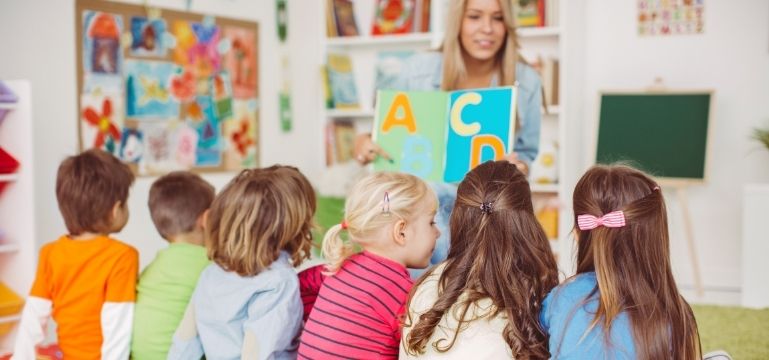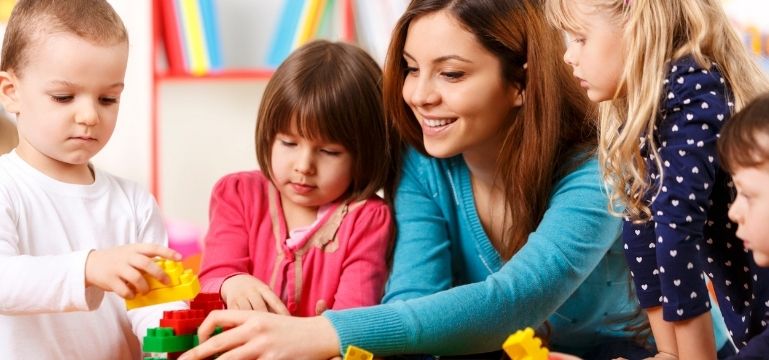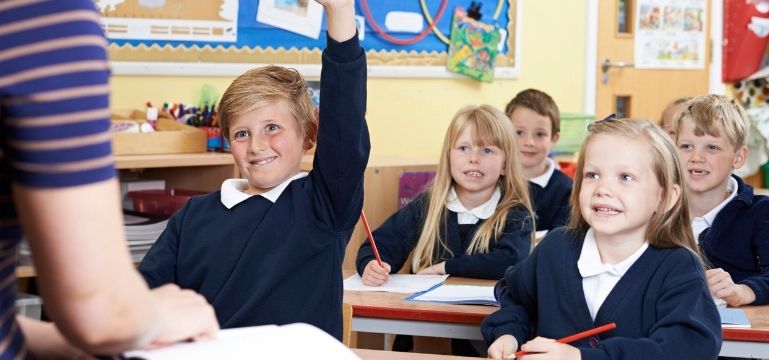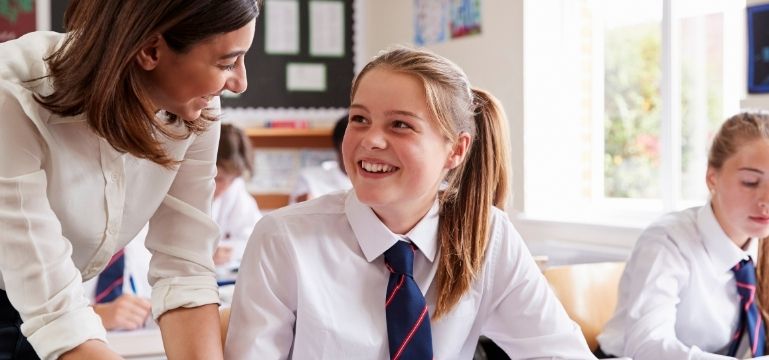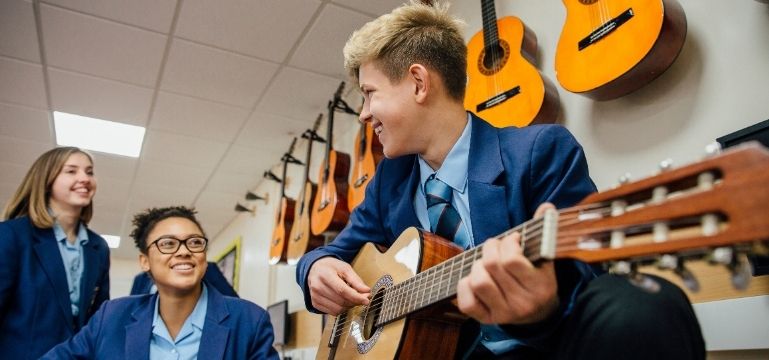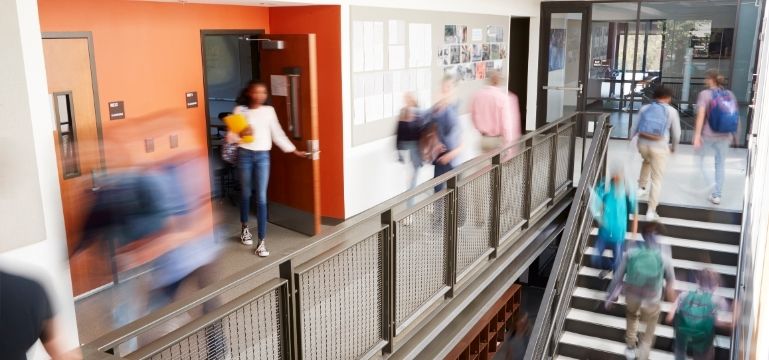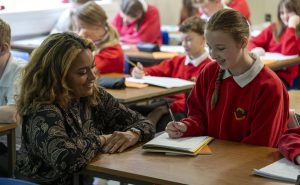Improvement Resource Type: Effective Practice
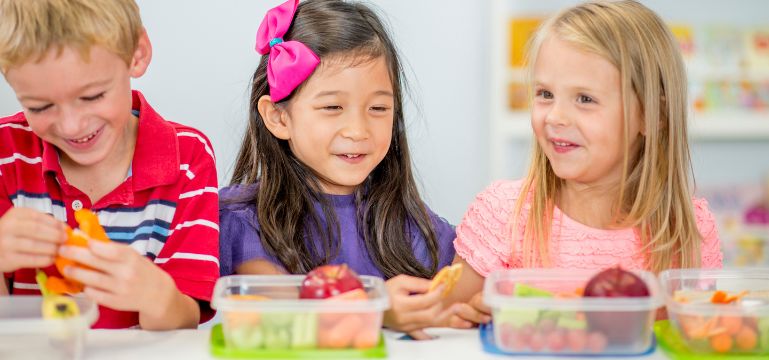
Information about the setting
Derw Bach is a preschool playgroup attached to Ysgol Calon y Dderwen Primary. It is situated in the centre of Newtown and serves an area of deprivation.
Derw Bach is registered for up to 32 three to four-year-olds offering three plus education hours and the childcare offer. It is an English medium setting but strives to use and encourage the use of the Welsh language.
Derw Bach provides a diverse, friendly and safe environment where children are actively encouraged and supported to become kind, respectful and independent individuals.
At present Derw Bach has families from Poland, Turkey and Ukraine. It strives to communicate in a family’s own language through greetings and the use of key words
Context and background to the effective or innovative practice
Evaluation practise identified that there were low attendance figures during the previous term, and this had led to children not making as much progress as they could. Practitioners decided to focus on further improving and building relationships with parents to improve attendance. They felt that this was an opportunity for children to make greater progress, and raise attainment in children facing elements of disadvantage. There was also an opportunity for parents to develop a better understanding of how their child learns and to feel empowered about how to support their child’s learning. Derw Bach decided to promote healthy eating, improve parents understanding of how children learn and to strengthen setting-home links.
Description of nature of strategy or activity
A number of strategies and activities were put in place using the early years grants available at the time. The healthy preschool policy was reviewed initially as the setting felt that it had to get a healthy eating message across to parents about lunch boxes. Strategies put in place included, ‘healthy eater’ stickers, lunch box ideas on social media, offering warm lunches to those who needed it, free lunch boxes, visits to the local food share, and simple cooking activities with the children. Grants were used to provide an extra member of staff to enable many children to stay an extra two hours and have lunch at the setting.
The setting provided each child with a home time pack to keep, which included activity ideas, recipes, Makaton signs, reading tips and yoga activities as well as a set of Numicon and a wordless book. The setting held open days for parents and grandparents and outings were arranged with children and families.
Each child received a personalised report at the end of their initial six weeks at the setting, to inform parents of what their child had achieved and how parents could help further at home. A useful app is also used, with each child having weekly photos shared with the home, including ideas about how parents can support the child’s learning.
Poor mental health is also on the rise in the area with increasing numbers of families struggling with day-to-day routines and with providing the stability and routine that their children need. Derw Bach recognises the struggles faced and provides for each individual need, whether this is simply by providing a place for a chat or offering encouragement and support to bring their children in regularly. Derw Bach often sends messages to parents who do not turn up and offers flexible times to arrive and depart. Parents are always welcomed to “stay and play” if they need to settle children. Derw Bach offers extra hours for children to enable parents to attend hospital appointments or during challenging times. It also offers free books, milk and lunches.
During transition days to school, the setting supports parents to send children. Some children are taken to the school by staff when parents are working, and others are met at the door of the school to support parents through this difficult, emotional time.
What impact has this work had on provision and children’s standards?
The setting has already seen an improvement in the quality of meals provided in lunch boxes. There is now lots of fruit and vegetables present. Children confidently tell the staff about the healthy food they have brought for their lunch. The extra hours offered over lunch time have increased attendance figures. Children’s confidence and independence have also grown.
Contacting parents when children are absent and offering support has made a difference to the confidence of parents and therefore children turn up even if they are late. Many more parents contact the setting to inform of absences as there are a number of ways to get in touch.
As a result of the home time packs, children have shown an increased level of skill with the Numicon shapes, and many are familiar with the story shared in the pack and are able to comment appropriately. Parents have commented how children are keen to take part in the activities and have grown in confidence since the packs were introduced. Children love to count with the Numicon shapes.
Practitioners are confident that this work will continue to have an impact on the children’s well-being. It has become obvious that parents are taking note of the activity suggestions sent home as children’s skills increase. Many parents have shared photos of their child taking part in suggested activities through the app. Children show pride when they demonstrate the skills learnt. Parents are now socialising and feeling more confident to attend as the setting has opened up the foyer for parents in the mornings. They are now more able to access the free books, leaflets, information and free milk available to them.
All September school starters settled quickly and confidently into school.
How have you shared your good practice?
Good practice has been shared with other early years settings.
